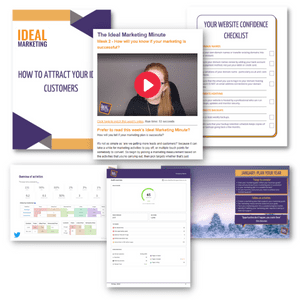What is Google PageRank?
The basic purpose of PageRank is to list web pages from the most important to the least important. If your web page has a lot of links from large websites that rank well, then your web page is given a high ranking. Where the links to your website come from is equally, if not more, important than the number of links going back to your page.
The History of Google PageRank
PageRank was developed in 1996 by Google founders Larry Page and Sergey Brin at Stanford University in America. Before PageRank, search engines typically linked to pages that had the highest keyword density in relation to the words used in a Google search.
Back then web designers would trick the system by repeating the keywords over and over again. Some even put hidden text on the pages to repeat these keyword phrases to reach the highest possible position in search engine results. This is known as keyword stuffing and if used as an SEO technique today, it will do more harm than good to your website rankings.
What types of websites should aim for a high page rank?
All websites should constantly aim for a higher page rank. It doesn’t matter if your website is an ecommerce site, an information site or a game site. By being ranked higher, this should increase the amount of site visitors to your website.
What techniques are involved in PageRank improvements?
- Backlinks – The process of having relevant sites link back to yours, because by doing this, their website is providing something of value to its users.
- Update your content regularly – Doing a balanced amount of work over a long period of time will show more results than adding fresh content all in one month and then not updating content on your website again for a year.
- Avoid overloading your site with keywords – Google can recognise this and lower your ranking because of it.
- Relevant content – Make sure the content on your site is highly relevant to your area of business and of value to your users.
Have a fast website – Always make sure that it takes as few seconds as possible for a website page to load, to avoid your users getting impatient or experiencing poor user experience. To maximise the time a visitor will spend on your site, make sure the speed of each page is as fast as possible. Research from The Aberdeen group shows that a 1-second delay in page load time yields 11% fewer views, 16% decrease in customer satisfaction and 7% loss in conversions.
How to make your website perform better
To rank high in Google searches, visitors need to enjoy using your site and to find what they were looking for. This is usually recorded using metrics such as how long they spend on your site and how many pages they view and whether they ‘convert’ – which could be to make a purchase or an enquiry on your site.
What might be stopping your website from scoring a high page rank
Achieving a high ranking on Google isn’t just as easy as doing all of the above.. If your market has a high density of competitors, it will take more work to get up the rankings, because there are more sites to be found on each search.
There are a whole host of reasons, both technical and content-based, which may be affecting your website performance in search. The best place to start is with an SEO audit, which we can help you with. For more information or to arrange an audit, contact me at Kieran@idealmarketingcompany.com







